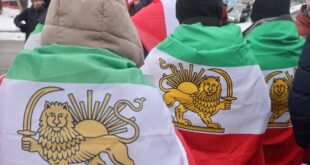 Iran and the International Atomic Energy Agency (IAEA) started a third round of talks in Tehran on Monday to resolve the remaining issues between the two sidesThe Iranian delegation is headed by the Supreme National Security Council (SNSC) Undersecretary Javad Vaeedi, while the IAEA team is presided by the IAEA deputy Director General Ollie Heinonen.
Iran and the International Atomic Energy Agency (IAEA) started a third round of talks in Tehran on Monday to resolve the remaining issues between the two sidesThe Iranian delegation is headed by the Supreme National Security Council (SNSC) Undersecretary Javad Vaeedi, while the IAEA team is presided by the IAEA deputy Director General Ollie Heinonen.
Similar to the first two rounds, Heinonen is accompanied by IAEA director for foreign relations and policy making, IAEA regional director for safeguards, and IAEA’s legal advisor while Vaeedi is assisted by deputy chief of Iran’s Atomic Energy Organization Mohammad Saeedi and Iran’s permanent envoy to the IAEA Ali Asghar Soltanieh.
Last month IAEA inspectors after six years paid a visit to the heavy water reactor under construction in Iran’s central city of Arak.
The visit to Arak nuclear reactor was arranged as a result of a recent agreement between Iran and the UN nuclear watchdog. The two sides have recently shown deep enthusiasm for resolving the remaining issues in relation to Tehran’s nuclear programs and activities and they have so far attended two rounds of talks which both have described as “constructive”.
The two rounds of talks between Iran and the IAEA followed a groundbreaking agreement gained during an earlier meeting between Iran’s chief nuclear negotiator and Supreme National Security Council (SNSC) Secretary Ali Larijani and IAEA Director General Mohammad ElBaradei in Vienna two months ago.
In the first round of talks Iran’s SNSC Undersecretary Javad Vaeedi and IAEA deputy Director General Ollie Heinonen agreed about the start of visits by UN experts to the heavy water reactor in Arak.
They also agreed to finalize the approach and method for the implementation of safeguards in Natanz nuclear enrichment facility by early August.
The new round of Iran-IAEA talks aims to specify a proper modality for resolving the remaining issues with regard to Iran’s nuclear programs and clarifying certain points and executive issues in relation to the implementation of safeguards at Natanz facility.
In these three rounds of talks with Tehran, the IAEA deputy director general for safeguards, Ollie Heinonen is always accompanied by IAEA director for foreign relations and policy making, IAEA regional director for safeguards, and IAEA’s legal advisor.
Inclusion of technical, legal and political officials in the IAEA delegation reveals that the two sides strive to solve their problems from different aspects.
While West has always sought to politicize Iran’s nuclear issue, Tehran insists that questions about its nuclear programs and activities are technical and legal in nature and should, thus, be verified by the IAEA and not by the UN Security Council
 Eurasia Press & News
Eurasia Press & News



